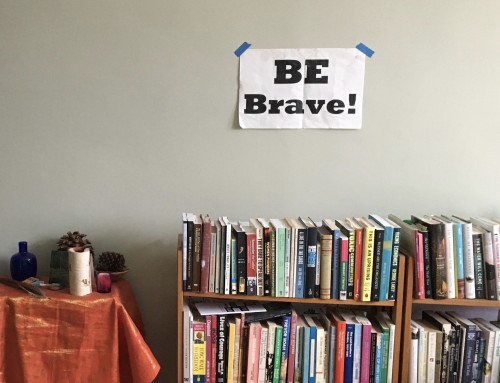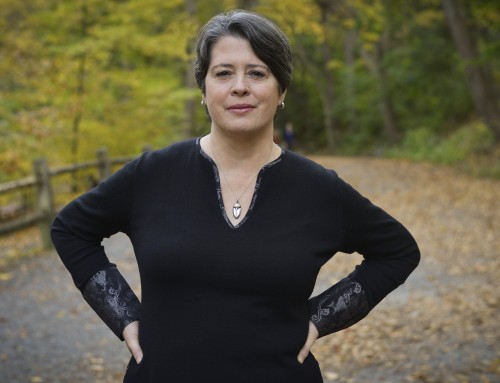My eight-year-old son loves The Dangerous Book for Boys, which for anyone who has missed it, has been on the bestseller lists for months. It contains lots of old fashioned fun: how to build a go-cart, strategies for playing chess, even quotes by William Shakespeare. There is much to recommend it as an alternative to video games and violent movies, which is a relief since my adventurous son and his Quaker mother often disagree on the ethics of entertainment. I was pleased to find him reading this book with real interest and then scrambling around the house to find materials to make a battery. But last night I came across a section that greatly disappointed me and reminded me how my values are often out of step with the popular culture.
Of course it was the section on famous battles. I should have seen it coming that a book extolling the virtues of masculinity would sooner or later get around to glorifying war. To make matters worse, the battle I decided to read about was a Zulu battle with the British. Given that I am currently teaching a class on South African history, I dug in with interest. It was clear from the first sentence that the authors had a romantic notion of European colonialism, though that word was never mentioned. A boy reading this would have no idea that Europeans were systematically taking African land and resources, destroying their traditional cultures, and setting themselves up to rule out of arrogance and greed. Indeed the whole viewpoint of the story was clearly aligned with the British who were portrayed as heroes for fighting off a horde of wild Zulu (though the fact that the British had guns and the Zulu spears was not explored in depth). The piece ended by extolling the courage of the men on both sides.
Now I’m all for courage. I think we could use more of it in our world, and I’m happy for my son (as well as my daughter) to learn this virtue. I also recognize that many people have shown courage in times of war. My own father was on a ship that was sunk off the coast of Europe during WWII. He spent the night in the water with the Germans shooting at him and still managed to save another man. But I hope and pray that my son won’t ever need this kind of courage, that he finds other ways to prove his manhood.
I was musing on this when I heard that Al Gore won the Nobel Peace Prize for his work on climate change. I think Gore has shown the other kind of courage that I want for myself and my children. Granted Gore hasn’t been shot at physically, but he has taken lots of pot-shots, like being called “ozone man” during the 2000 presidential race. I think it took courage for Gore to raise climate change in Congress decades ago, when people thought it was a lark. It took courage to keep talking about it when people expected him to skulk away, like most defeated presidential candidates. Maybe he doesn’t have the courage to give up his big house or his big car, as critics charge, but I could use more courage in the area of personal sacrifice as well. I’m still glad to have his example to hold up next to generals and foot-soldiers.
As for other examples, I’m happy to say that The Daring Book for Girls is coming out soon, written by two friends, Miriam Peskowitz and Andi Buchanan. Given that both these women send their children to Quaker schools, I’m hopeful it won’t be glorifying battles, except maybe those for justice.




Ah, how important it is to read the fine print! Fortunately you know enough history to explain what really happened. How many other parents don’t!
It’s unsettling how quickly a war mentality seeps into every pore of a culture. Not to wave flags hurrah for us is like treachery. The truth hs to gasp for its own breath.
If it were me, I would write a letter to the author (via the publisher). Correcting this historical inaccuracy and gently pointing out both the racism/chauvinism and the pro-violence attitude may help produce a more worthy second book.
Thanks, Nancy. Good idea.
I just finished Christmas shopping for my 5 year old nephew, and was surprised how hard it was to find toys he’d enjoy that didn’t involve violence. My mom told me he enjoys exploring, and suggested a toy pirate ship… complete with toy cannon, swords, and guns. Why is it assumed that explorers must involve violence? Anyways, I finally settled on buying him a submarine boat being attacked by a giant squid (it was either that or a “Shark Attack!!!” boat, and I thought the squid looked slightly less aggressive)…
All this just to say that I completely agree with and relate to your post.
Actually Gore has not been exactly a model of courage. The UN reports that animal-based agriculture is one of the largest causes of global warming, greater than all means of transportation combined.
However, Gore is tied to animal agriculture interests, and all his material on global warming expurgates this important fact. And he’s well known to be a meat eater.
Ironically, he’s getting picketed for his lack of candor on global warming at the same time he’s being honored. So far, none of the protests against him have gotten him to tell the truth.
Thanks Tatiana and Bill. I appreciate Bill’s comments about Gore. I had heard he wasn’t totally walking his talk, and I think it is important to raise that and hold public figures accountable. However, I also struggle with how “pure” we have to be to raise an issue publicly. I would hate for those criticisms to enable people to dismiss his overall message, that global warming is real, we are responsible for it, and there are things we can do that will make a difference. I have heard people latch onto a public person’s hypocracy as an excuse not to make any changes themselves. For me, Bill’s comment is a reminder how difficult it is to live our principles and how far I (a failed vegetarian)have to go myself.
I have a six-year-old daughter, and the Dangerous Book for Boys has been on our wishlist for a while. I saw the Famous Battles section the first time I browsed through it at the bookstore. It didn’t bother me so much.
We read the Chronicles of Narnia together a couple years ago, many of the books several times, and your account about the Zulu battle with the British calls the Chronicles to mind: the setting may have been fantasy, but the subtext was clearly supportive of Anglo-imperialism and colonialism, guarded by violence and warfare. Nonetheless, we loved Narnia and its rich characters. Because they were very real. One time my daughter said thoughtfully that she understood why Aslan never called her into Narnia: because she is a Quaker and wouldn’t fight in his battles.
Sure, violence and war are glorified in our culture and media. I find it impossible, and undesirable, to ignore that or shelter my family from it. Living in a community with high military saturation disposes me to agree with Chuck Fager’s thesis in A Quaker Declaration of War: some of the things we need to know to advance our peace witness in a strategic way, we can learn from military thinkers.
I’m also an http://www.avpusa.org/“ REL=”nofollow” TITLE=”Alternatives to Violence Project”>AVP/http://www.afsc.org/hipp/“ REL=”nofollow” TITLE=”Help Increase the Peace Program”>HIPP facilitator, and that experience has shown me that the most violent circumstances in prisons and schools can endow people with significant insight into transforming conflict without violence.
We learn a lot from the limited violence in the books we explore together. They become openings for searching conversations and we evaluate the positions and needs and options expressed and unexpressed in the readings. We learn more about our own resources of courage and love, and we ask ourselves what our leading might be.
I don’t look at Gore as a paragon of courage; as a white man in the US, who benefits from hetero privilege, I have to realize that it doesn’t take a lot of courage to raise my voice and be heard; there are a lot of systems in place that allow me to do so without much risk. Unlike me, Gore doesn’t worry about feeding his family from week to week, and I would say his risks are fewer. For the white man in the US, it takes courage to step outside of white power and privilege, something inconceivable to most of us.
I have the profound blessing of knowing Tom Fox as a friend and mentor, and I am still stunned by his courage. But even as a hostage in Iraq, Tom could be reasonably certain that his children weren’t in the line of fire. That was not the case for the woman Tom described as his http://waitinginthelight.blogspot.com/2005/06/for-sake-of-our-children.html“ REL=”nofollow”>teacher in courage.
Thanks, John. I appreciate your lifting up the life of Tom Fox. I have thought that I should have used him as the example in my blog, rather than getting caught up in the current news cycle, which is what pointed me toward Gore. I also agree that children can learn things from battle stories. As I’ve written before, I personally appreciate the messages in Harry Potter and Star Wars, despite the violence. I think the post came from a sense of fatigue, though, that just about everything that is geared toward my son has this element. In The Dangerous Book for Boys, at least in the Zulu battle, I couldn’t see anything redeamable. It wasn’t like Narnia where good was fighting evil. In fact, it was a case where evil was disguised as good. I appreciate the challenge, however, especially on models of courage.
I totally didn’t know that was by Andrea Buchanan and Miriam Peskowitz – I now have to get it!